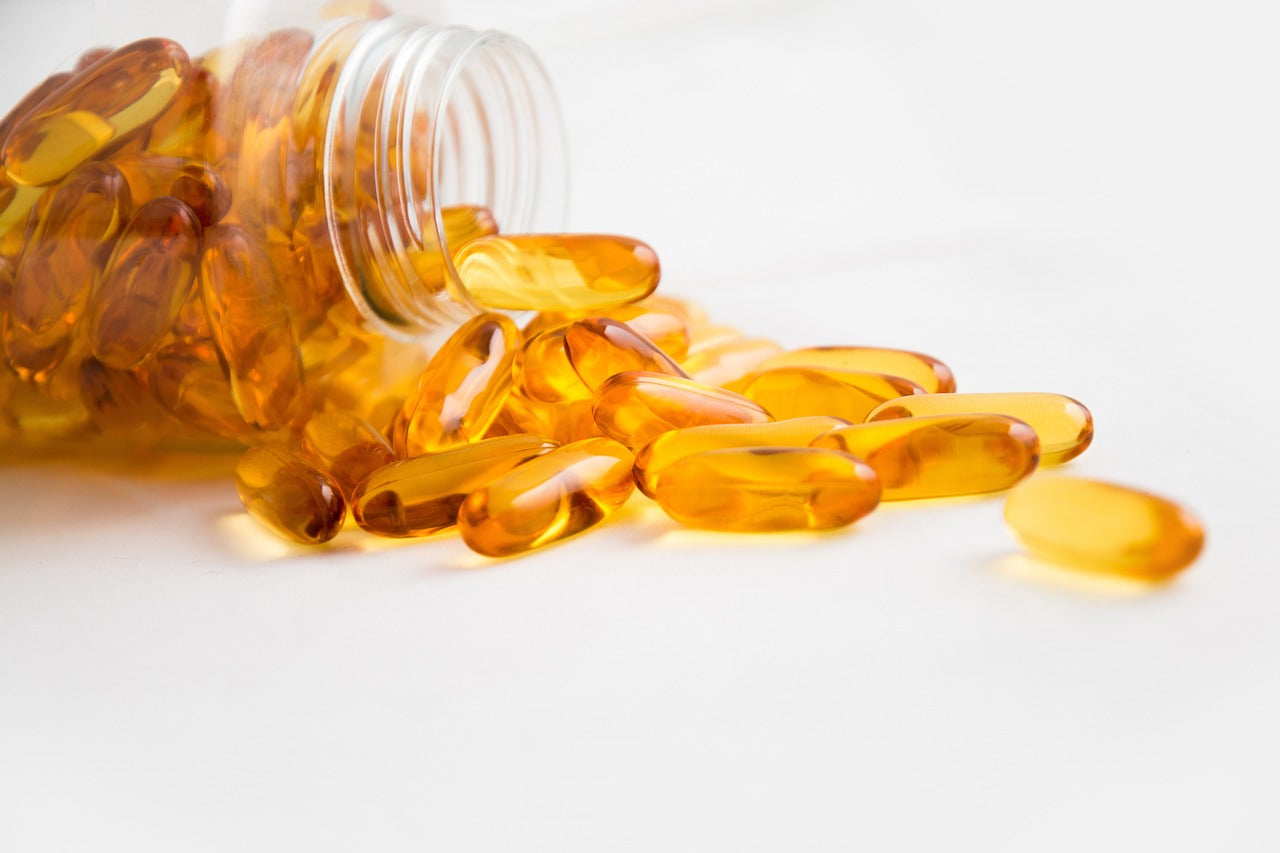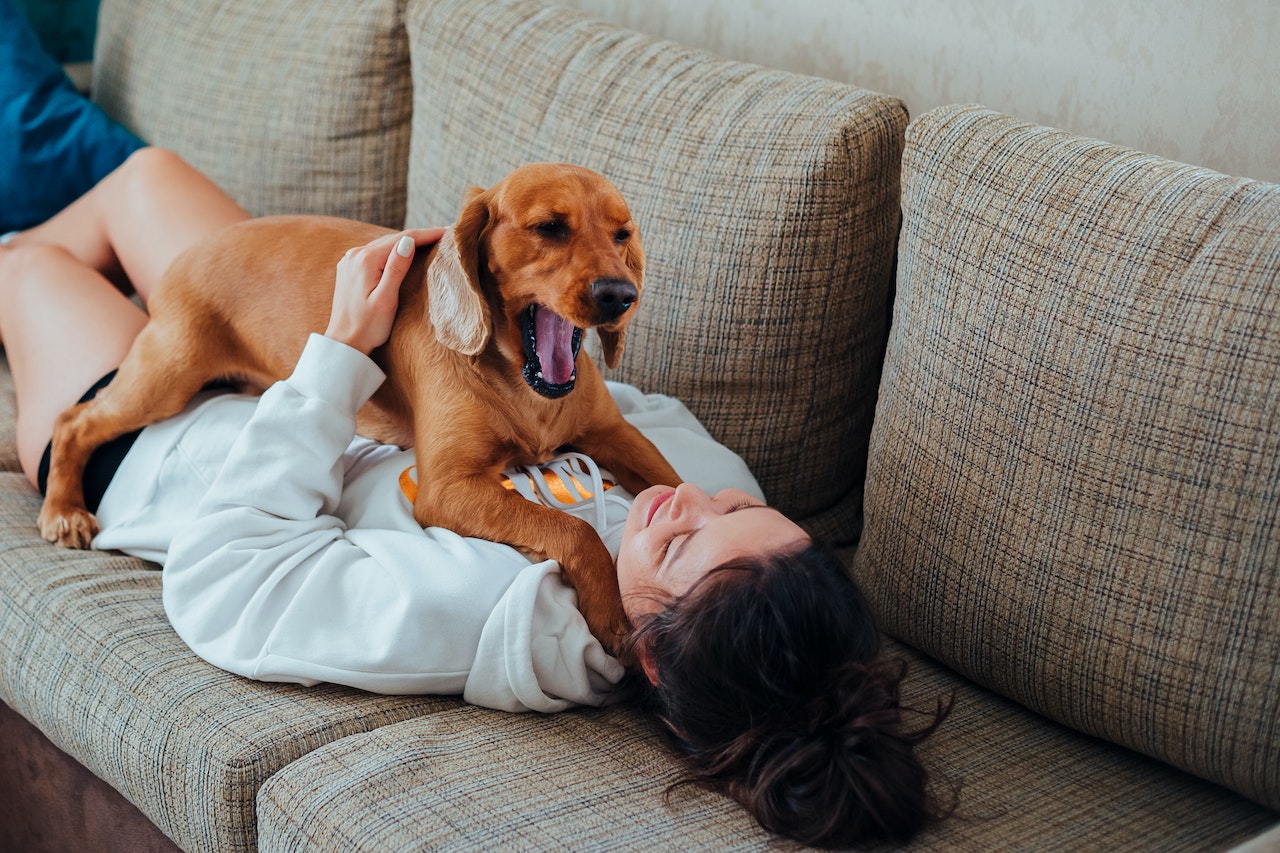Has your dog been itching with no end in sight? We know your struggle. Having been through the worst with Latte's skin issues, we now have a better idea of how to keep her flare ups under control. Yes, I said "better idea" because the root cause of chronic itchy skin is often a mystery, and we are not afraid to admit that at the end of the day, a lot of it is guesswork.
Till this day, we do not know why Latte is so unlucky to be plagued with chronic skin issues and on and off yeast overgrowth. It could be poor breeding. It could be that we spayed her too young. It could be over-vaccination. Or it could be all of that.
If you are facing the same situation as us, we are sharing our personal experience to help you on your journey. What you are about to read are things that have helped Latte go from a bald, constantly itchy and inflamed pup (read her itchy skin story) to a fluffy, happy Westie, without itch taking over her life.
While every dog is different, and what works for our pup may not always work for yours, we hope that they will help you get on the right track.
Clean diet + food elimination
A good diet is crucial to keeping a dog healthy, period. Whether it's skin issues, kidney disease, or cancer, the first thing we should look at is diet. What we put into our bodies affects how they would function, whether we are dog or human.
If you are feeding your dog a highly processed diet, you need to fix that first. Here's our dog food guide.
Chronic itchy skin has two main triggers - food and environment (atopy). In order to find out whether a particular ingredient is making your pup itchy, you need to do food elimination.
That means sticking to one meat protein (take your best guess of which your pup is okay with or choose a novel protein) and some vegetables for two to three months. If the condition significantly improves or resolves, you can then introduce a new meat protein.
Self control and patience are important during this period. Food elimination takes time and discipline. You can't be feeding your dog chicken and then sneaking her a duck treat.
After the whole food elimination process, we ideally want to have at least three to four meat options (with a mix of white and red) for your dog, to ensure that she's getting all her nutrients.
The tricky part
Here comes the problem no one wants to have. Food elimination means avoiding the food triggers. The risk of dogs with food allergies is that they tend to get allergic to more and more proteins with time (some people believe a leaky gut is to blame for this), leaving few or no protein options. Hence, elimination alone is often not the solution.
Our best bet is to focus on improving our dogs' overall immunity and gut health. Once the skin issues are cleared and you think your dog is ready, you may gather up some courage to introduce a tiny bit of less allergenic protein to test the waters. The aim is to safely and slowly increase the things your dog can consume, and not make the safe foods pool any smaller.
Be strict + no fruits
When you have a dog with food allergy, you have to assume the "evil" dog parent role. Be strict - no going soft and feeding your dog indiscriminately. If you do that and your dog gets itchy, you would have no idea what caused it.
For Latte, fruits are a huge itch trigger. A little bit of mango and she attacks her tail the next day. It's sad that she cannot have fruits regularly when she loves them so much. We give a tiny bit to her once in a while but not without being prepared for flare ups.
If you have an itchy dog, stop all fruits first and introduce them again slowly when the time is right. Start with low-sugar fruits, such as berries, as sugar can cause or aggravate itchy yeast overgrowth.
Cytopoint + annual bloodwork
Cytopoint is an anti-itch injection that works really well for Latte. To learn more about it, read our post on Cytopoint vs. Apoquel. It has helped us manage her environmental allergies and offers immediate relief whenever she flares up.
So far, she's been getting a jab every three to six months. Cytopoint generally only lasts 4 weeks so we can say that she's not entirely reliant on it. It offers relief when she gets flare ups due to environmental factors like haze or nearby construction.
While we have not seen any side effects of Cytopoint, we do not jab her unless absolutely necessary. She also gets her blood work done every year to check for abnormalities.
Remove/avoid any possible allergens
When you have an itchy pup, your main job is to remove potential allergens from your dog's life.
-
Keep your home clean and wash your dog's bedding, towels, and toys with a gentle detergent regularly
-
Use non-toxic cleaning detergents
-
Do not use artificial scents at home
-
Do not expose your dog to cigarette smoke
-
Use a HEPA air purifier
-
Avoid foods your dog is allergic or sensitive to
-
Clean and dry your dog's paws thoroughly after walks to remove allergens
Active, low-stress lifestyle
Stress elevates cortisol and histamine levels in the body, impacting the immune system and aggravating allergy symptoms. Hence, it's important to keep your dog's stress level low.
Common stressors dogs have to face include separation, when we leave them at home or at the groomer's, city noise pollution, and crowded places. While these stressors are often unavoidable, what we can do is to offer our dogs outlets to destress.
That's where activities like exercise, sniffing on walks, and chewing come in. In this article (under point 3), we share that dogs have six core emotional needs. Are all your dog's needs, beyond daily walks, being met?
To keep it simple, dogs need time and space to be themselves and to do their favourite things. It's our responsibility to give them that!
Supplements that can help with skin issues
Supplements should not replace a high quality, balanced diet but it can help fill in gaps and boost your dog's overall health. Here are supplements that can improve immunity and reduce inflammation:
-
Omega 3: Often lacking in our diets, omega 3 (DHA and EPA) is one of the fundamental additions we recommend to balance the abundant omega 6. It helps fight inflammation in our itchy pups
-
Pre/probiotics: 70-80% of the immune system is located in our gut! Dogs with food allergies would benefit from greater gut bacterial diversity. This is especially so if your dog was prescribed with antibiotics for their skin issues
-
Immune boosters: Mushrooms, colostrum, berries can help strengthen the immune system
-
Natural antihistamines: Quercetin and stinging nettle leaf are nature's antihistamines that may help alleviate allergy symptoms
-
Yeast infection remedies: If your dog is suffering from yeast overgrowth, there are homeopathic/herbal remedies that can help eliminate yeast
For dogs with pre-existing health conditions, always consult a trusted vet before introducing new supplements.
Use gentle shampoos
Dogs with environmental allergies may do well with frequent baths but be careful with the shampoo that you use. You want to choose one that's gentle and suitable for using often. We do not want to strip your dog's skin of its natural oils or trigger a negative reaction with harsh chemicals.
Always dry your dog thoroughly after baths. Leaving a wet patch of fur can lead to nasty hot spots or fungal infections.
Products we recommend
For yeasty dogs
This is a fuss-free yeast remedy that's gentle (no scary yeast detox):
Combination of Glacier Peak Gold + Adored Beast Love Bugs Pre & Probiotics
Dogs with environmental allergies
Clean your dog's paws after each walk to remove allergens. Instead of washing and drying Latte's paws each time (she walks 3-4 times a day), a no-rinse paw cleanser has been a godsend for us.
If you have a dog with severe environmental allergies, a walking suit and dog shoes may help keep nasties at bay.
-
Walking Suit
Dogs with food allergies
If your dog is allergic or getting allergic to many foods, you may consider a leaky gut homeopathic remedy.
Hotspots, wounds, or insect bites
An effective topical spray can help relieve itch and heal wounds and hotspots quickly.
-
Adored Beast Owies & Oopsies Topical Spray (may stain white coat)
Gentle shampoo
Latte has been using these shampoos for a few years and we find that it helps soothe her itch, albeit temporarily.
-
Pure Light Botanics Itchy Skin Shampoo (discontinued)



